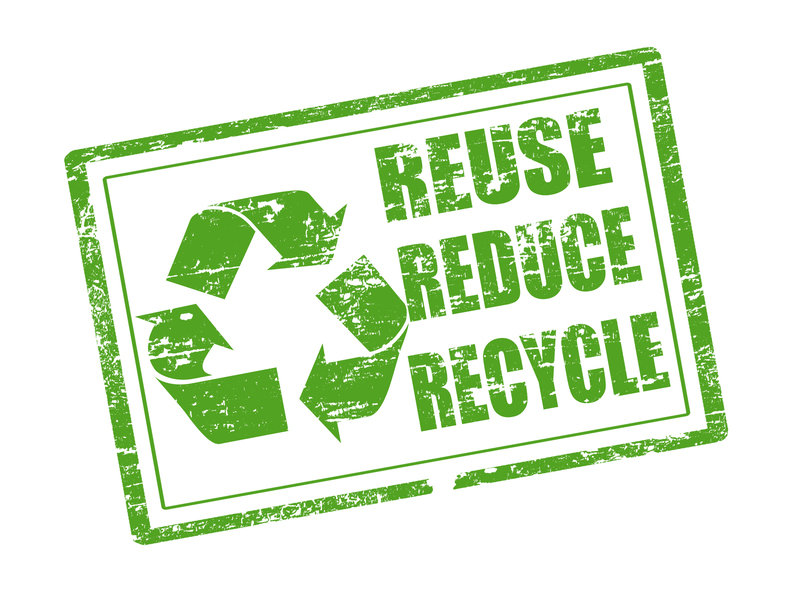Tips for Saving Cash When Removing Bulky Waste Items
When it comes to home improvement, moving, or simple decluttering, bulky waste removal is often a necessary--but potentially costly--step. If you're facing piles of old furniture, appliances, garden sheds, or other heavy rubbish, knowing how to manage the disposal process efficiently can save both money and stress. In this comprehensive guide, we'll share practical and actionable tips for saving cash when removing bulky waste items.
Understanding Bulky Waste and Why Removal Gets Expensive
Bulky waste items generally refer to large objects that cannot fit in normal household bins. This includes old sofas, mattresses, white goods (like refrigerators and washing machines), garden debris, and construction waste. Many local councils and private rubbish removal services charge a premium for dealing with such oversized trash because of the logistical challenges and regulatory requirements.
The price can also increase due to factors such as location, amount of waste, labour involved, and disposal fees at landfill or recycling centers. However, with proper planning and a knowledge of cost-effective methods, you can greatly reduce the expense.

Best Ways to Save Money on Bulky Waste Disposal
1. Assess and Sort Your Bulky Items
- Evaluate What Needs Removal: Take stock of everything you wish to discard. Could any items be sold, donated, or upcycled? Sorting can significantly cut down your removal costs as you might realize some stuff doesn't need to be junked after all.
- Separate Recyclables: Many councils charge less--or nothing at all--for recyclable goods such as metal, electronics, or green waste. Segregating before collection keeps your removal bill down.
2. Make the Most of Free Council Collections
- Utilize Local Authority Bulky Waste Pick-Ups: Some local councils offer complimentary bulky item collection services for residents, typically once or twice a year. Check their website or call your local office for details and guidelines.
- Understand What's Accepted: Most free collections have strict limits on types and amounts. Ensure you follow the rules or you could incur additional charges.
3. Donate Usable Goods
- Explore Charity Collection: Many non-profit organizations will take furniture, appliances, and housewares that are in decent condition. Charities like the Salvation Army, Goodwill, or local re-use networks may even pick up from your home for free or a nominal fee.
- Use Online Platforms: Try listing items on websites like Freecycle, Craigslist, Facebook Marketplace, or local community forums. Giving away bulky items means you avoid removal fees--and help someone in need!
4. Sell or Swap Bulky Waste Items
- Sell Before You Skip: Before paying to remove furniture or appliances, see if you can sell them locally. Many people are looking for bargains, or parts for DIY projects.
- Swap with Others: Some community groups and apps allow residents to swap or barter items. You may be able to exchange unwanted goods for something you need (or for cash!), and avoid disposal costs altogether.
Cutting Costs on Professional Bulky Waste Removal Services
5. Collect Quotes and Compare Prices
- Shop Around: Don't hire the first company you come across. Request at least three quotes from different bulky waste removal companies. Pricing can vary greatly for the same job.
- Ask About Discounts: Some providers offer discounts for seniors, students, or repeat customers. It never hurts to ask if there's a way to reduce your fee.
6. Combine Loads with Friends or Neighbors
- Bulk Up Your Collection: Most removal companies charge by volume or minimum load size. Consider joining forces with nearby residents--removing all your unwanted items in a single collection can cut individual costs substantially.
- Organize a Community Clean-Up: By coordinating with your neighbors and arranging a bulk collection, you can often negotiate a reduced group rate with local waste contractors.
7. Prepare Bulky Waste for Removal
- Dismantle Large Items: Breaking furniture down into smaller parts reduces space in the removal van and minimizes labor. Most companies charge less if the heavy lifting is already done.
- Place Items in an Accessible Location: Moving your waste as close to the curb or collection area as possible can lower labor costs and reduce the total time required by the removal team.
- Bundle and Stack: By tying or stacking items neatly, you make it easier (and potentially safer) for workers, saving time and therefore cash.
8. Understand How You're Being Charged
- Volume vs. Weight: Some companies charge by overall weight, while others by the space taken up in their vehicle. Ask for a transparent pricing model to avoid surprises.
- Additional Fees: Be sure to ask if there are any hidden fees, such as for stairs, extended carry distance, or specific bulky items (like pianos or mattresses).
DIY Options for Low-Cost Bulky Waste Disposal
9. Hire a Skip or Dumpster for DIY Removal
- Consider Self-Loading: Hiring a skip or mini-dumpster is economical if you have a lot of waste, ample space, and the time to fill it yourself. You only pay for the skip and not for labor.
- Choose the Right Size: Ordering a skip that's too big means wasted money. Too small, and you risk overfilling and fines. Measure your pile before booking.
- Check Permit Requirements: Placing a skip on a public road may require a council permit. Fines for missing paperwork can outweigh the savings!
10. Use Council or Private Waste Transfer Stations
- Transport Bulky Waste Yourself: If you have access to a van or trailer, delivering your bulky rubbish directly to a recycling center can be very cost-effective. Many tips accept household waste for free or a small fee.
- Check Opening Hours and Accepted Items: Not all facilities can handle every type of bulky waste. Ensure in advance they take your specific items to avoid wasted trips.
11. Repurpose or Upcycle Waste Where Possible
- Get Creative: Before tossing it all, could you turn your old door into a workbench, or repurpose pallets for garden furniture? Repurposing saves cash and reduces environmental impact.
Other Creative Ways to Reduce Bulky Rubbish Removal Costs
- Local Bulk Trash Events: Watch for city-sponsored collection days that accept bulky items for free--a great way to clear out without paying private haulers.
- Use Junk Removal Apps: There are new digital services where you can snap a photo of your unwanted items, get instant quotes, and sometimes find people who'll take things off your hands for free.
- Check for Rebates on Appliance Disposal: Energy companies and councils occasionally offer cash rebates or free pick-up on old refrigerators or washing machines when you upgrade.
- Avoid Last-Minute Disposals: Planning ahead gives you more time to explore options, sell or give away items, and obtain the best prices.

Frequently Asked Questions (FAQs) About Bulky Waste Removal
How can I avoid paying for bulky item removal?
Check for council freebies: Many areas offer one or two free collections per year. Alternatively, try giving away or selling your items.
What are the cheapest ways to get rid of old furniture?
Donation, recycling, or giving items away through online platforms are usually the least expensive options. Taking waste to a recycling facility can also be very low cost.
Can I leave bulky waste at the curb?
This depends on local regulations. Dumping waste illegally can lead to heavy fines. Always schedule pick-up with your council or a licensed hauler.
What if I have a lot of construction debris?
For large quantities, hiring a skip bin or using a waste transfer station is typically most cost-effective. Consider reusing or donating surplus materials where possible.
Conclusion: The Savvy Way to Bulk Waste Removal
Removing bulky waste items doesn't have to empty your wallet. By planning ahead, exploring donation and resale options, taking advantage of council services, comparing prices from waste removal companies, and considering DIY approaches, you can make considerable savings.
Remember, the most effective strategies are those that begin with reducing what you need to throw away in the first place. With these cost-saving tips, your next bulky waste removal project will be both affordable and environmentally friendly!
